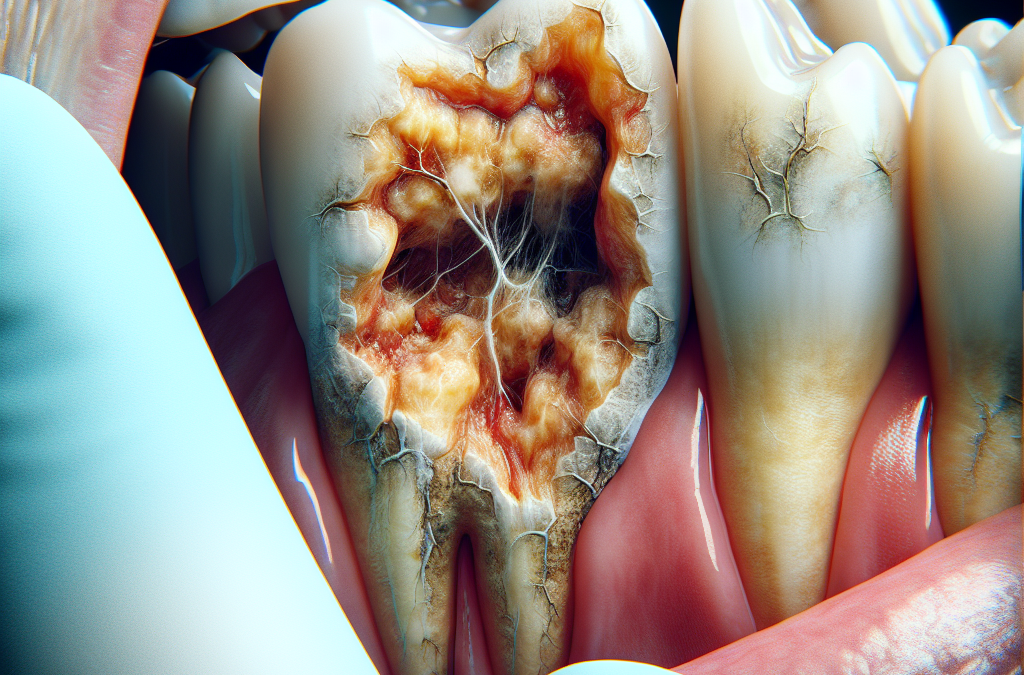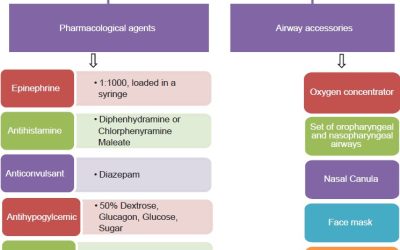Imagine waking up one morning with an excruciating toothache that just won’t go away. You might be tempted to brush it off, thinking that it will eventually subside on its own. However, delaying treatment for a dental emergency can be a risky decision. Ignoring the pain and putting off a visit to the dentist can not only worsen your condition but also lead to a host of potential complications. In this article, we will explore the various risks associated with delaying treatment for a dental emergency and why seeking immediate care is crucial for your oral health.
Importance of Seeking Prompt Dental Treatment
Dental emergencies can arise unexpectedly, causing pain, discomfort, and potential long-term consequences if left untreated. Seeking prompt dental treatment is crucial for maintaining oral health and overall well-being. When faced with a dental emergency, understanding the risks and benefits of timely treatment is essential in making informed decisions about your dental care.
Understanding Dental Emergencies
Dental emergencies encompass a range of urgent dental issues such as severe toothaches, broken teeth, knocked-out teeth, oral infections, and injuries to the mouth or jaw. These situations require immediate attention to alleviate pain, prevent further damage, and preserve oral function.
The Role of Timely Treatment
Seeking prompt dental treatment plays a significant role in mitigating the risks associated with dental emergencies. When you act promptly, you increase the likelihood of preserving your natural teeth, reducing pain and discomfort, and preventing further deterioration of your oral health.
Consequences of Delaying Treatment
Delaying treatment for a dental emergency can have serious consequences that go beyond oral health. Here are some risks you may face by not seeking timely dental care:
1. Increased Pain and Discomfort
By delaying treatment, you allow dental problems to escalate, resulting in increased pain and discomfort. Dental pain can be excruciating and significantly impact your daily activities. Whether it’s a severe toothache or an oral infection, the longer you wait, the worse the pain becomes.
Exacerbation of Dental Pain
When you ignore a dental emergency, the pain can intensify over time. For example, a small cavity that could have been filled promptly may progress into a severe toothache, requiring more invasive treatment like a root canal or even tooth extraction.
Persisting Discomfort and Reduced Quality of Life
Untreated dental issues can lead to ongoing discomfort, making it difficult to eat, speak, and enjoy life to its fullest. Chronic dental pain can have a significant impact on your quality of life, affecting your ability to engage in daily activities and maintaining your overall well-being.
2. Worsening Dental Condition
Delaying treatment for dental emergencies allows your dental condition to worsen, leading to more complex issues in the long run.
Progression of Decay or Infection
Neglected dental problems, such as untreated cavities or infections, can progress rapidly, causing significant damage to your teeth and gums. What could have been a simple filling procedure may escalate to the need for a dental crown or a root canal if left untreated for too long.
Tooth Loss Risk
Failure to address dental emergencies promptly increases the risk of tooth loss. Whether it’s from severe decay, advanced gum disease, or traumatic injuries, untreated dental issues can result in the loss of your natural teeth, requiring more extensive dental treatments like dental implants or bridges.
Spread of Infection
Oral infections can spread if left untreated, affecting not only your teeth and gums but also potentially spreading to the jawbone or surrounding tissues. This can lead to significant health complications, including the need for surgical interventions and long-term antibiotic treatments.
Complications in Root Canal Infections
A root canal infection left untreated can lead to serious complications, such as the formation of abscesses, which can cause excruciating pain and require immediate attention. Delaying treatment in such cases can result in the infection spreading further, potentially affecting other parts of your body and leading to life-threatening complications.
3. Functional Impairments
Untreated dental emergencies can have a profound impact on your ability to perform basic daily functions such as eating, speaking, and maintaining overall oral health.
Difficulty with Eating and Speaking
When dental issues are neglected, you may experience discomfort and limitations in chewing and biting. Painful teeth or missing teeth can make it challenging to eat certain foods, leading to poor nutrition and potential weight loss. Additionally, dental problems can affect your speech, making it harder to communicate clearly and impacting your confidence in social and professional settings.
Impact on Overall Oral Health
Neglected dental emergencies can have a cascading effect on your oral health. When one tooth is compromised, the surrounding teeth may also be at risk. This can lead to a cycle of dental problems, including tooth decay, gum disease, and bite misalignment, which can have long-term consequences if not addressed promptly.
Altered Bite Alignment
Untreated dental emergencies, such as missing teeth or misaligned jaws, can result in changes to your bite alignment. This can cause discomfort, difficulty in chewing, and result in an uneven distribution of forces on your teeth, leading to further dental problems over time.
4. Increased Treatment Complexity
Delaying treatment for dental emergencies often leads to the need for more extensive and complex procedures. This can have implications for both your oral health and your financial well-being.
Requirement of Extensive Procedures
Neglected dental emergencies may require more invasive and complex treatments, such as root canals, extractions, or orthodontic interventions. These procedures not only demand more time and effort but can also be more expensive and challenging to manage.
Higher Costs and Time Commitment
By delaying treatment, you risk incurring higher dental treatment costs. As dental issues worsen over time, the necessary procedures become more complex and require increased resources, resulting in additional expenses. Moreover, the longer you wait to seek treatment, the longer the overall treatment process may take, causing further disruptions to your daily life.
5. Risk of Dental Emergencies Becoming Life-Threatening
Ignoring dental emergencies can have severe and even life-threatening consequences. Failure to seek prompt treatment puts you at risk for various complications that can affect your general health.
Potential for Serious Complications
Untreated dental infections or injuries can lead to serious complications, including the spread of infection to other parts of your body. This can result in conditions like sepsis, a potentially life-threatening infection that affects the entire body.
Infection Spreading to Nearby Organs
An oral infection left unchecked can spread to nearby organs such as the sinuses, throat, or even the brain. This can lead to severe health problems, including sinusitis, tonsillitis, or even meningitis, which require immediate medical attention.
Risk for Systemic Infections
Neglected dental emergencies can weaken your immune system, leaving you susceptible to systemic infections. Poor oral health has been linked to an increased risk of conditions like cardiovascular disease, diabetes, respiratory infections, and adverse pregnancy outcomes.
6. Psychological and Emotional Impact
The impact of delaying treatment for a dental emergency goes beyond physical symptoms. It can also take a toll on your mental and emotional well-being.
Heightened Anxiety and Fear
Living with untreated dental emergencies can cause heightened anxiety and fear around dental visits and procedures. The longer you wait to receive treatment, the more time you have to dwell on your anxiety, potentially making the experience even more overwhelming.
Impact on Mental Well-being
The presence of ongoing dental issues can negatively affect your mental well-being. Pain, discomfort, and self-consciousness about your oral health can lead to feelings of embarrassment, low self-esteem, and depression. Addressing dental emergencies promptly can help alleviate these emotional burdens.
Impaired Social Interactions
Untreated dental emergencies often result in altered appearance, speech difficulties, and self-consciousness, which can affect your ability to engage confidently in social interactions. Feeling embarrassed about the state of your oral health may cause you to withdraw from social activities or avoid smiling, leading to a decline in your overall quality of life.
7. Effects on Overall Health
Oral health is closely linked to general health, and neglecting dental emergencies can have implications for your overall well-being.
Link Between Oral Health and General Health
Numerous studies have established a strong connection between oral health and general health. Poor oral hygiene and untreated dental problems can contribute to various systemic conditions, including cardiovascular disease, diabetes, respiratory infections, and adverse pregnancy outcomes.
Association with Cardiovascular Disease and Diabetes
The bacteria present in infected teeth and gums can enter the bloodstream, potentially causing inflammation and damage to the blood vessels. This can increase the risk of developing cardiovascular diseases such as heart disease and stroke. Additionally, untreated dental conditions can adversely affect blood sugar control in individuals with diabetes.
Impact on Immune System
Neglected dental emergencies can weaken your immune system, making you more susceptible to infections and compromising your body’s ability to fight off diseases. Good oral health is essential for maintaining a strong immune system and overall health.
8. Long-Term Financial Burden
Delaying treatment for dental emergencies can result in increased financial burdens in the long run.
Additional Expenses for Advanced Treatments
Neglected dental emergencies often require more advanced and costly treatments. For example, a simple filling that could have resolved a cavity quickly may progress to the need for a dental crown or a root canal, resulting in higher treatment costs.
Potential Need for Dental Prosthetics
Tooth loss due to untreated dental emergencies may necessitate the need for dental prosthetics like implants, bridges, or dentures. These restorative procedures can be expensive and may require ongoing maintenance, resulting in a significant financial burden.
Lost Work Productivity
Untreated dental emergencies can disrupt your daily routine, impacting your work productivity. The ongoing pain, discomfort, and necessary dental appointments can cause missed workdays, which can have financial implications and potentially affect your professional reputation.
10. Permanent Damage and Irreversibility
Delaying treatment for dental emergencies can lead to permanent damage and irreversible consequences.
Irreversible Tooth Loss
Failure to seek prompt treatment increases the risk of tooth loss, which is irreversible. Missing teeth can have significant aesthetic and functional impacts, affecting your self-confidence, oral function, and overall facial aesthetics.
Facial Aesthetics and Self-confidence Impact
Untreated dental emergencies, such as tooth loss or misaligned jaws, can significantly impact your facial aesthetics and self-confidence. Your smile plays a crucial role in your overall appearance, and neglecting dental issues can result in changes to your facial structure and a loss of self-esteem.
In conclusion, seeking prompt dental treatment is of utmost importance when faced with a dental emergency. Delaying treatment can lead to increased pain and discomfort, worsening dental conditions, functional impairments, increased treatment complexity, potential life-threatening complications, psychological and emotional impact, overall health risks, long-term financial burdens, and permanent damage. By addressing dental emergencies promptly, you can protect your oral health, preserve your natural teeth, and maintain your overall well-being. Remember, your dental health is a crucial aspect of your overall health, and timely treatment is essential for optimal oral and general well-being.












